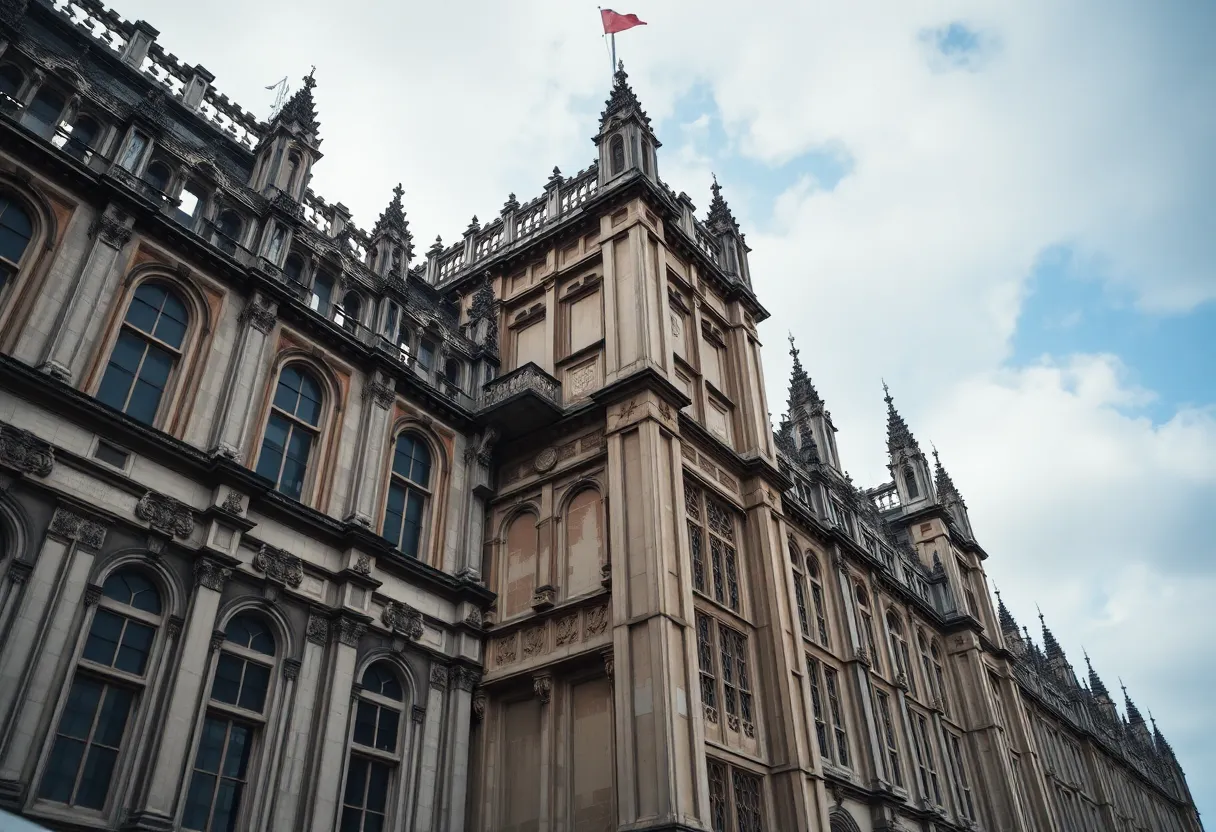News Summary
The Palace of Westminster faces alarming fire incidents and asbestos exposure risks, prompting urgent calls for extensive restoration and safety measures.
Concerns Over Fire and Asbestos Risks in the Palace of Westminster
The iconic Palace of Westminster is facing increasing scrutiny due to worrying trends in fire incidents and asbestos exposure. With a staggering record of at least 44 fires reported within the Houses of Parliament over the last decade, the need for urgent restoration and modernization has never been more critical. Compounding these issues, over 1,000 incidents of asbestos discovery have been noted, raising significant alarms regarding the safety of all who enter this historic edifice.
Recent Alarm Bells: Rising Fire Incidents
In 2024 alone, four separate fires have erupted within the Palace of Westminster, while a total of 13 fires have occurred since the beginning of 2020. Although there was a temporary lull in fire incidents during the pandemic, the figures indicate a disturbing pattern, with a peak of 10 fires recorded back in 2016. The current situation has led to fears that without swift action, the building could witness a disaster akin to the devastating Notre-Dame blaze, if restoration work continues to lag.
Asbestos: A Hidden Threat
Asbestos, a material infamous for its health risks, has been a persistent problem within the Palace of Westminster. A total of 1,057 items across parliamentary facilities have been identified as containing this hazardous substance. The ongoing management surveys aim to assess whether these materials warrant immediate removal or require monitoring. Labour peer Peter Hain has highlighted the situation, describing the building as being “infested” with asbestos, with serious implications for the safety of MPs, peers, staff, and the general public.
Plans for Restoration: A Complex Dilemma
As discussions around restoration intensify, new plans are expected to be laid out later this year that offer various options. A full decant—or relocation—of parliament could come at a staggering cost of between £7 billion and £13 billion and might extend the project beyond ten years. Alternatively, a rolling programme covering several decades may be the preferred choice, albeit at potentially even greater expense and extending work across a staggering 70 years.
Deteriorating Facility: A Need for Modernization
The Palace of Westminster is often referred to as the “cathedral of horror” due to its convoluted mix of outdated and contemporary installations. Planned upgrades encompass a comprehensive overhaul of the building’s mechanical and electrical systems, many of which have been in place since the 1980s or earlier. Urgent repairs and improvements in fire safety protocols are currently underway, yet the full scope of the restoration project is not projected to commence until the mid-2020s, necessitating preparatory work that is crucial for any future undertaking.
Bracing for Disaster: The Coming Risks
As the restoration process continues to experience setbacks, there exists a very real risk of a catastrophic event that could devastate the Palace of Westminster. Experts warn that if progress isn’t made soon, the safety of the building could be compromised. The removal of asbestos alone may require a workforce of approximately 300 workers for around two and a half years, necessitating that the site be temporarily unused.
Public Perception and Challenges Ahead
Amidst all this, public perception of the staggering costs associated with the restoration is likely to complicate decision-making. Concerns linger around the necessity and willingness of MPs and peers to vacate the premises during renovations. Historical context weighs heavily on this discussion, as the Palace of Westminster has suffered a devastating fire in 1834, leading to ongoing debates regarding its upkeep and preservation.
As the clock ticks, the Palace of Westminster’s future hangs in the balance, and the need for decisive action has never been more urgent.
Deeper Dive: News & Info About This Topic
HERE Resources
Miami-Dade County Slaps Over $108,000 Fine on Li’l Abner Mobile Home Park
The Shocking Discovery of Asbestos Removal at the North Carolina Legislature
Rising Concerns: Asbestos Exposure Linked to Mesothelioma in High-Profile Lawsuit
The Bronx Community Faces Uncertainty After Five-Alarm Fire
Ex-Nurse Battles Mesothelioma: A Story of Asbestos Exposure
Legal Battle Sparks Over Asbestos Litigation Amid Health Violations
The Persistent Battle Against Malignant Mesothelioma: Maintenance Therapy Explored
Delay in Peterborough Regional Swimming Pool Demolition Due to Asbestos
Illegal Asbestos Dumping Shocks Outwell Residents
UK Parliament Faces Urgent Asbestos and Fire Safety Crisis



















